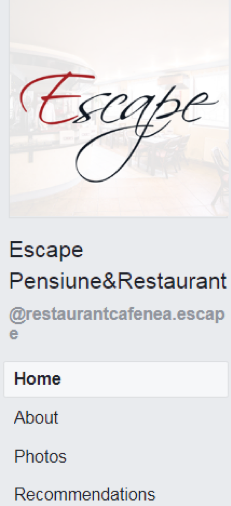The unexpected and impending change in Newsfeed announced by Mark Zuckerberg in January 2018 is affecting both the personal profile and the business page. But, the drastic Newsfeed change is set to overhaul and leave an impact on the professional pages, especially for small and medium-size companies. With more than 80 million businesses using the social media platform such pages are an integral part of the entire Facebook ecosystem.
As per the recent changes, Facebook will show less of posts from business pages, videos, links to external blogs – which means less visibility of the content posted from business and professional pages. However, the new Facebook update has come as a sign of relief for small local businesses because the change will make it simpler for the customers to find and interact with the local businesses. And, the change possesses a serious threat to Google Local. The social networking service is gradually making a transition to become a useful tool for the members.
4 Imperative Changes of Business Pages on Facebook
1) Prominence of the recommendation feature

To make it easier for the local small businesses, Facebook has made the recommendation feature prominent, which is helping local businesses to cultivate recommendations among the customers. Getting the user to click on the recommendation button will lead to a timeline post, which is then visible to the friends and family members of the customer. It is working as a potent stimulus for local businesses to reach their audience. And, it’s probably the most significant aspect of the Facebook Local.
2) Enhancement in local searches
While Google Local is the dominant platform for local search, Facebook wants to increase its market share, Facebook local is helping users in their search for local SMBs. Even though the search engines like Google Local dominates the local searches at 80% percent compared to 48% for the social networking site, Facebook is a dark horse in the race and probably the only one which can match Google’s size, resources, and audience. The new local search results are displaying information by popularity among friends and not strangers. Furthermore, for medium and small businesses with a brick-and-mortar store, Facebook is helping the users find a local retail shop without leaving the social networking platform.
3) Expansion of ‘Event’ feature
 The ‘event’ feature of Facebook enables one to invite customers to any business event. According to Facebook, local businesses which sell tickets with the events feature witnesses an increase in the number of tickets sold. The timeline features the details of the event for customers who express interest in going. The post is visible to the friends and family members. It generates positive word-of-mouth publicity without the business doing anything.
The ‘event’ feature of Facebook enables one to invite customers to any business event. According to Facebook, local businesses which sell tickets with the events feature witnesses an increase in the number of tickets sold. The timeline features the details of the event for customers who express interest in going. The post is visible to the friends and family members. It generates positive word-of-mouth publicity without the business doing anything.
4) Sharing of business information
Due to the updated algorithm of Facebook, business owners can easily feature information such as price, hours of operation, recommendation or even a menu on the business page. The new changes allow businesses to share information such as upcoming offers and events.
How are Retail Businesses Using Facebook to Realize their Marketing Goals?
For offline retail brands, Facebook is no longer a luxury; it has become a necessity. With a little research about the audience and tactics to use the social networking platform, small and local businesses can exponentially grow their sales figure and increase their brand awareness.
Here are a few ways how Facebook is doing everything in its power to help the local retailers.
1) Reach customers earlier using relevant ads
Let’s say a potential customer is planning to purchase eyewear from a retail shop, but has not yet decided on the type of frame and its color. The retail business can leverage the advantage of dynamic ads to reach the customers in the initial phase of their journey. If the same person is interested in buying contact lenses instead of the eyewear, the dynamic Facebook ad displays images of the contact lenses and pushes the customer in the purchase funnel.
2) Increase in store sales
The store sale optimization feature of Facebook enables retailers to find the right message to display to the potential customers. The feature is helping the local retail stores to take advantage of their offline data to drive in-store sales. The new algorithm ensures that the customers are likely to make an in-store purchase irrespective of whether it’s returning customer or a new customer.
3) Personalized retail catalog
Using the latest enhanced collection ads launched by Facebook, retailers can provide a personalized retail catalog to the audience. It provides the retailers with flexibility which was earlier missing on Facebook. Retail stores can use the Collection to inspire product discovery and increase their revenue.
4) Online reviews
Today, customers hardly purchase without reading the reviews on sites like Google or Yelp. Reviews help a customer to understand what the previous customers have to say regarding the brand. And, for reviews, retailers can rely on Yelp because in the United States 49.6% of the customers whose income is above $100k use Yelp before buying a product online. So, how can retailers use Facebook reviews when Google and Yelp dominate the online review market. According to research, Facebook accounts for 50% of the total social referrals and 64% of total social revenue. So, Facebook reviews do matter, and retailers need to give them importance.
Success Story of a Retail Businesses Using Facebook
Facebook and the retail sector are a perfect match because the social platform allows the retailers whether local or global to reach their marketing goals. Swedish food retailer Matsmart used Facebook to double its revenue in 3 months using a series of highly segmented and dynamic ad campaigns. The brand used Facebook to grow brand awareness and sales. In a time period of 6 months, the ROI of the company shot up to 4 times and the revenue from the Facebook campaign increased by 1.6 times. The campaigns run on Facebook were segmented primarily based on the demographics, and the campaign was designed to attract new visitors to the website. Relevant products were shown to the customers at the right time, which resulted in the massive success of the campaign.
Summary
The algorithm shift introduced by Mark Zuckerberg has left small business owners in a dilemma because the new feed will foster genuine engagement. Though the update will help increase engagement, businesses have to understand how to overcome the hurdles and ensure their content is reaching the right audience at the right time. Also, small and medium businesses with a limited budget need to reevaluate how to use Facebook and create a marketing strategy which will circumvent the negatives which come in conjunction with the latest changes. Facebook and the other social neighbors will continue to shock everyone, so businesses need to ensure they don’t get too comfortable with a single platform. To keep up with the social game, a business owner should be flexible, open to changes, adaptable.
Authored by: Priya Jain, reporter for SmallBizTechnology.com

